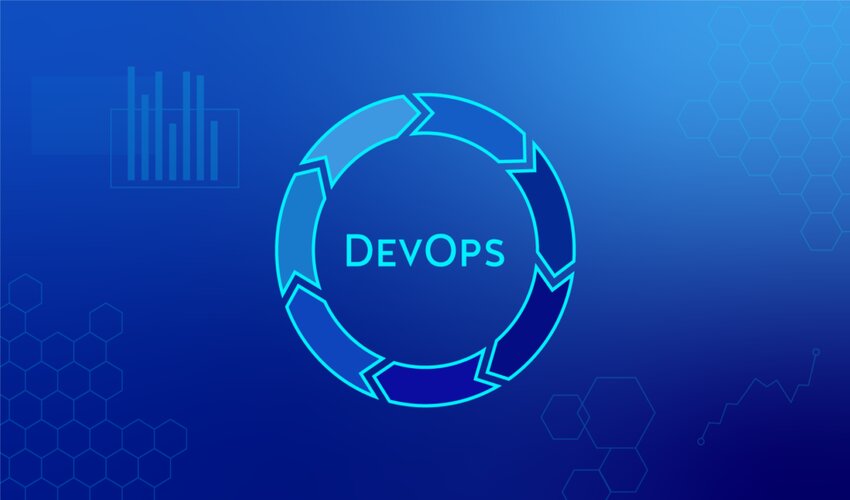Introduction to DevOps
DevOps is a software development methodology that combines operations and development teams into a single, integrated team. It aims to improve the speed and quality of software delivery by breaking down traditional silos between these two groups. DevOps relies on automation and collaboration to streamline the development process, from code creation to testing and deployment.
The goal of DevOps is to deliver software faster, with fewer errors, and with more reliability than traditional development methods. By removing bottlenecks in the development process, DevOps enables teams to rapidly iterate on code and respond quickly to changing customer needs or market conditions. This approach has become increasingly popular in recent years as organizations seek to accelerate their digital transformation efforts.
However, implementing DevOps requires significant changes in organizational culture, processes, and technology infrastructure. It requires a shift towards agile methodologies, continuous integration/continuous deployment (CI/CD) pipelines for automated testing and deployment, cloud-based infrastructure for scalability and flexibility, as well as close collaboration between developers and operations teams.
Culture and Collaboration
Culture and collaboration are two essential elements of DevOps excellence. In order to achieve success in a DevOps environment, organizations must foster a culture that promotes teamwork, communication, and continuous improvement. Collaboration is crucial because it enables teams to work together more effectively and efficiently, reducing the risk of errors, delays, and misunderstandings.
Effective collaboration requires open communication channels between team members and departments. This means encouraging everyone to share their ideas, feedback, and concerns openly and constructively. Organizations can also encourage collaboration by investing in tools that facilitate communication such as chat rooms or video conferencing software. Additionally, leaders can create opportunities for cross-functional teams to work on projects together which helps build trust among team members and promotes knowledge sharing.
In conclusion, culture and collaboration are critical components of DevOps excellence. A strong company culture that values teamwork and continuous learning can help drive innovation while effective collaboration practices will lead to better outcomes for both individuals within teams as well as the organization as a whole. By enabling effective communication channels across all levels of an organization’s hierarchy ahead with providing opportunities for cross-functional teams to work together towards common goals; companies can foster an environment where collaborative effort is appreciated leading towards achieving DevOps Excellence.
DevOps Tools and Technologies
DevOps tools and technologies are the backbone of DevOps practices. These tools enable organizations to automate their software development lifecycle and ensure continuous delivery of high-quality software products. Some popular DevOps tools include Docker, Jenkins, Ansible, Chef, Puppet, Nagios, Gitlab, Jira, and Slack.
Docker is a containerization tool that allows developers to package an application along with its dependencies into a single container that can run on any machine. Jenkins is a continuous integration tool that automates the building and testing of code changes. Ansible, Chef, and Puppet are configuration management tools that automate server provisioning and application deployment. Nagios is an infrastructure monitoring tool that provides real-time alerts for system issues.
Gitlab is a version control tool for code collaboration while Jira is a project management tool used for tracking issues in software development projects. Slack is an instant messaging platform that enables team communication across different locations.
Overall, these DevOps tools provide organizations with the ability to build better software faster while ensuring reliability and scalability in their operations. With effective implementation of these technologies as part of their DevOps strategy; businesses can achieve excellence by transforming themselves into successful entities with optimized IT capabilities. Take your Career next level with Our Azure Data Factory Training
Continuous Integration and Deployment
Continuous Integration and Deployment (CI/CD) is a critical aspect of DevOps excellence. With the rapid pace of software development, CI/CD ensures that code changes are quickly integrated and deployed. Continuous integration involves merging code changes into a shared repository multiple times a day. This allows developers to detect errors early on and resolve them before they become more difficult to fix.
Continuous deployment takes continuous integration one step further by automatically deploying code changes to production environments after passing automated tests. This eliminates the need for manual intervention, which can introduce human error or slow down the deployment process. CI/CD also provides greater visibility into the build pipeline, enabling teams to track progress and identify bottlenecks or areas for improvement.
In summary, implementing CI/CD practices helps organizations achieve faster time-to-market, improved quality of software releases, and increased collaboration between development and operations teams. By streamlining the build-test-deploy cycle through automation, DevOps excellence can be achieved with ease.
Infrastructure Automation
Infrastructure automation is the process of automating the deployment, configuration, and management of IT infrastructure. This approach is a key component of DevOps, as it enables organizations to accelerate software delivery by eliminating manual processes and reducing human error. Infrastructure automation tools such as Puppet, Chef, Ansible, and SaltStack can help organizations achieve this goal by allowing them to define their infrastructure as code.
By leveraging infrastructure automation tools, organizations can achieve greater agility and flexibility in their operations. Automating routine tasks such as server provisioning, software updates, and system monitoring can free up IT teams to focus on higher-value activities that drive business growth. Additionally, automation can improve security by enforcing consistent policies across all systems.
Overall, infrastructure automation is essential for any organization that wants to succeed in today’s fast-paced digital landscape. By embracing this approach and adopting the right tools and practices, companies can streamline their operations and deliver applications faster with higher quality.
Conclusion
In conclusion, the DevOps training program provides a comprehensive understanding of the principles, practices, and tools required to successfully implement DevOps in modern software development and operations environments. Throughout the training, participants have gained insights into the collaborative culture, automation techniques, and continuous delivery processes that are the foundation of DevOps.
Author Bio
I am Hemanth, possess a deep understanding of various technological trends, advancements, and their implications.
Throughout my career, I has contributed to numerous technology publications, authoring articles, blog posts, and whitepapers on a wide range of topics, including artificial intelligence, Big Data, Cyber Security, Ansible, Snowflake and Guidewire Training














Leave a Reply